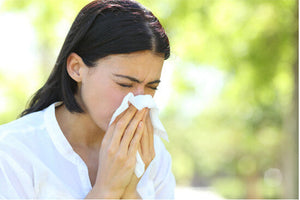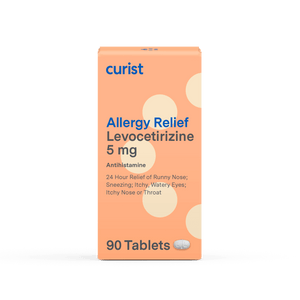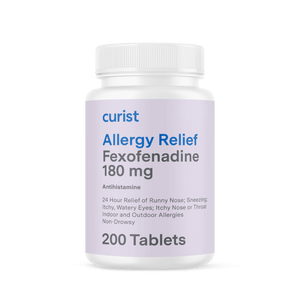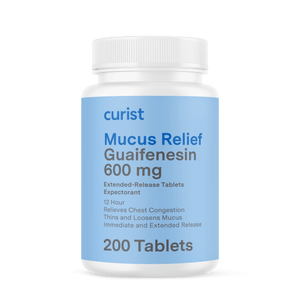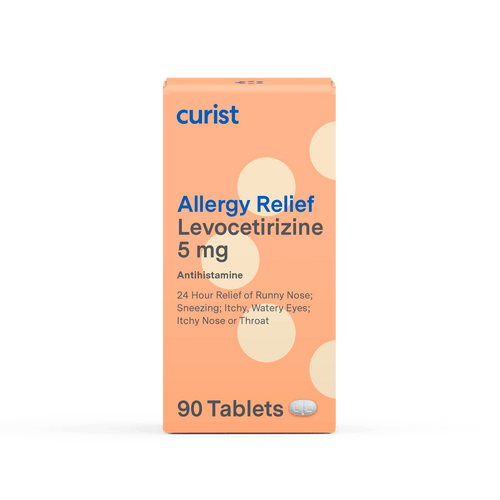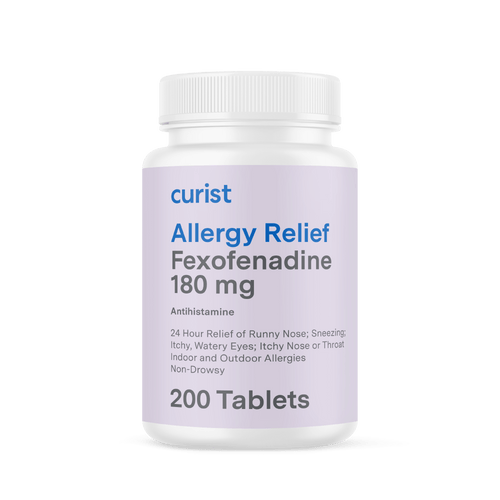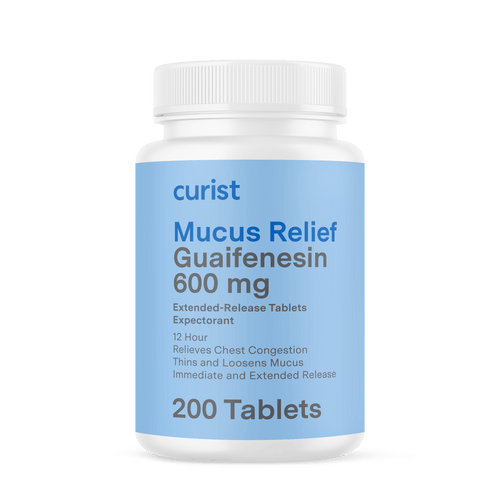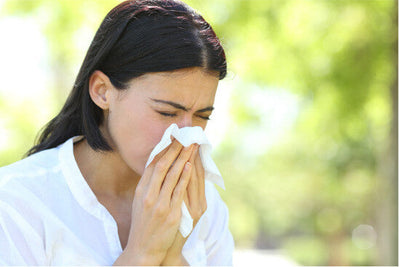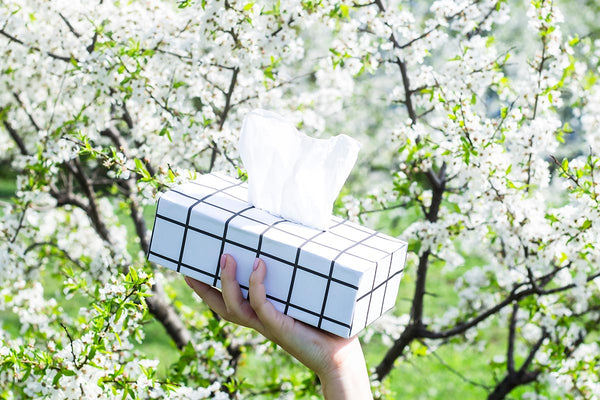
By The Curist Team and reviewed by Dr. Marc Goldstein, MD, Curist Medical Advisor
Curist delivers over-the-counter medicines to your door at a fraction of the price of traditional brands. We hope everyone stays safe and healthy during this time.
What Are Allergies?
Allergies or allergic reactions occur when the body raises its defenses against an outside substance, and produces a chemical called histamine. This histamine triggers a variety of physical symptoms which can affect your eyes, nose, throat, skin, lungs and even stomach in a number of ways.
The combination and intensity of symptoms vary from person to person. Symptoms can range from something minimal like occasional sneezing or itching to severe asthma and/or anaphylaxis (a medical emergency from an acute serious allergic reaction.
You might wonder about the reason for the body to respond like this. The fact is, allergies are still quite mysterious even in the scientific community. But here are some questions and answers that will hopefully fill out the picture a little bit.
Why Are Some People Allergic While Others Are Not?
One would guess there is a good reason for the body to react the way it does during an allergic reaction. The odd twist is that the substances which cause allergies are often relatively harmless.
Indeed, two different people might be exposed to the same substance, and have completely different immune responses. The first person may feel nothing unusual, while the second person experiences a strong, unpleasant allergic reaction.
Compare that scenario to that of two people encountering poison ivy. In the latter example, you can bet on both people going home itching.
So Allergens Cause Allergies?
There are no hard and fast rules for what determines an allergen, but there are some “notorious culprits” to which many people are allergic.
This is by no means a comprehensive list, but see if you recognize anything on this list that gives you symptoms:
- Pollen
- Cats
- Dogs
- Dust
- Mold & Mildew
- Shellfish
- Milk
- Peanuts
- Tree Nuts (e.g. almonds, cashews etc)
Can I Just Avoid Allergens To Reduce My Allergy Symptoms?
While it’s a great idea to manage your allergen exposures, it’s a challenge to do so entirely. This is particularly important for food allergies by removing items for your diet. But for other types of allergens, it can be difficult to avoid entirely because they are found everywhere. Still, a good start is understanding which ones lurk where. The most basic and helpful categorization is to think of allergens as living either indoors or outdoors.
- Outdoor allergies -- If you’ve ever seen people walking around in spring wearing mouth and nose coverings, it might be because they’re filtering out airborne outdoor allergens. Pollen is released by trees, weeds, and grass, and blown into the air, as are mold spores. Everytime you breathe in these particles, you are potentially inviting allergens into your upper and lower respiratory system. The air density of these invisible particles fluctuates, but they often spike during spring and fall. They also linger throughout warmer months, and in warmer climates where winters are mild. To learn more, checkout out: Outdoor Allergies: Enjoy Your Picnic Allergy Free
- Indoor allergies -- While outdoor allergens can at least subside in the cold of winter, indoor allergies are year-round visitors. The main culprits you can thank are dust mites, pets, indoor molds, and unwanted pests like cockroaches and rodents. Whether it is the dead skin from cats or dogs or dust particles floating around the air, the inside of a house, apartment, or office can be an unfortunate safe-haven for allergens. Especially if ventilation systems recycle the same air without properly filtering out these particles.
- Food allergies -- Food allergies are also important to mention, as even mild contamination from one allergy-causing food can have very serious consequences.
How Serious Are Allergy Symptoms?
How Common Are Allergies?
How Do I Treat My Allergies?
There is a lot you can do to find relief. Medicines available both over-the-counter and by prescription treat symptoms and/or counteract the histamine produced.
Most sufferers start with over-the-counter, non-prescription medicines. The choices are wide ranging and confusing, especially when different medications are combined into 1 product. For example, Tylenol Sinus Severe has 3 medications (acetaminophen, phenylephrine, and guaifenesin) - are all these medicines necessary? Maybe, maybe not. If you are still confused, don’t worry our physicians built this easy quiz to help you find the right products for you.
If over-the-counter medicines are not effective when taking the appropriate products for your symptoms, the next step may be to see an allergist. Allergists can pinpoint which substances cause you allergies, as well as advise you on how to get relief.
There are also many lifestyle tips you can use to help manage your home environment, and lessen your exposure to pollen. (Read more about pet allergies here, and drug-free allergy tips here.)
Allergies are, by definition, an irritant -- but the more you understand about them, the less they can irritate you. Here’s wishing you good health and all the allergy relief you seek.
